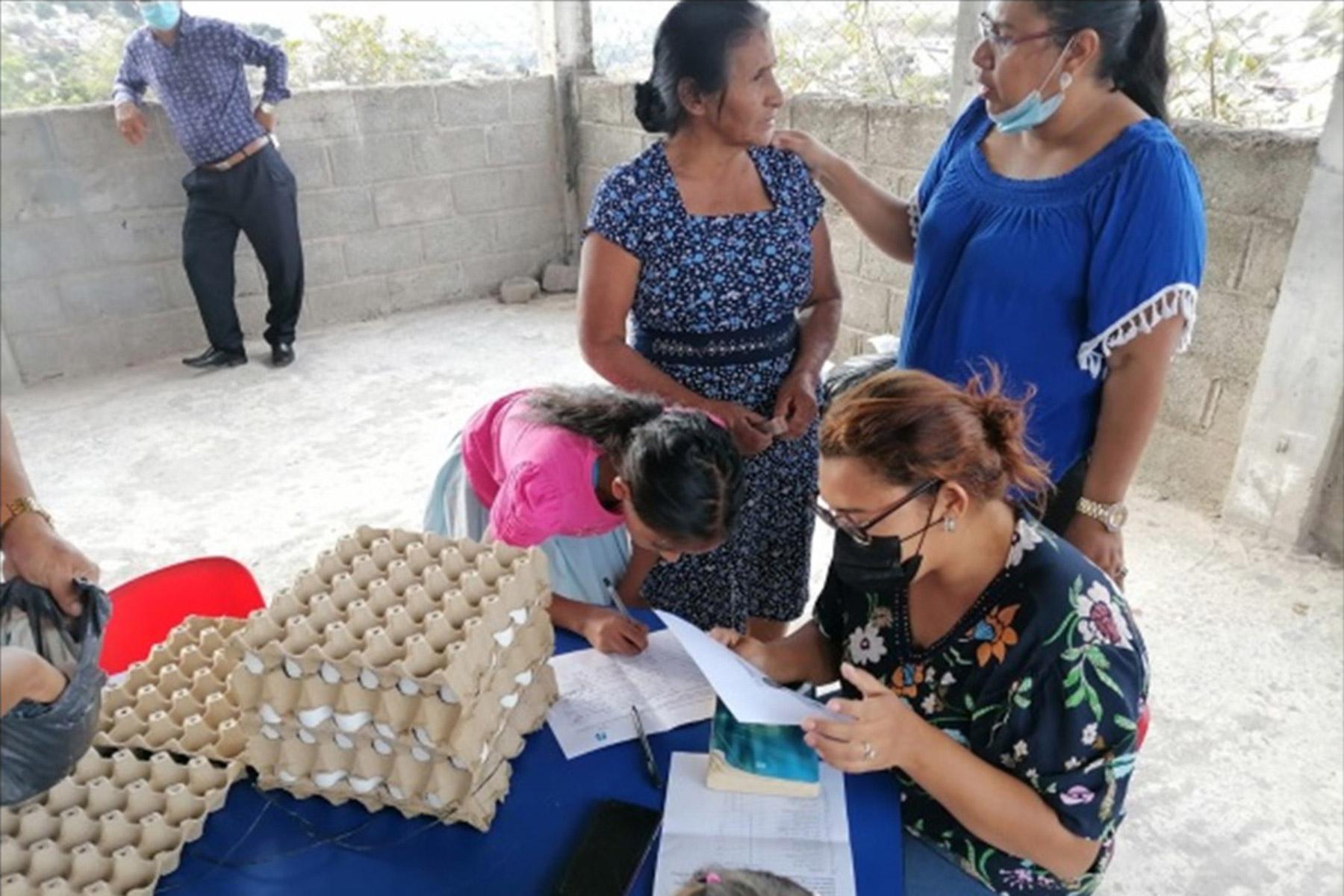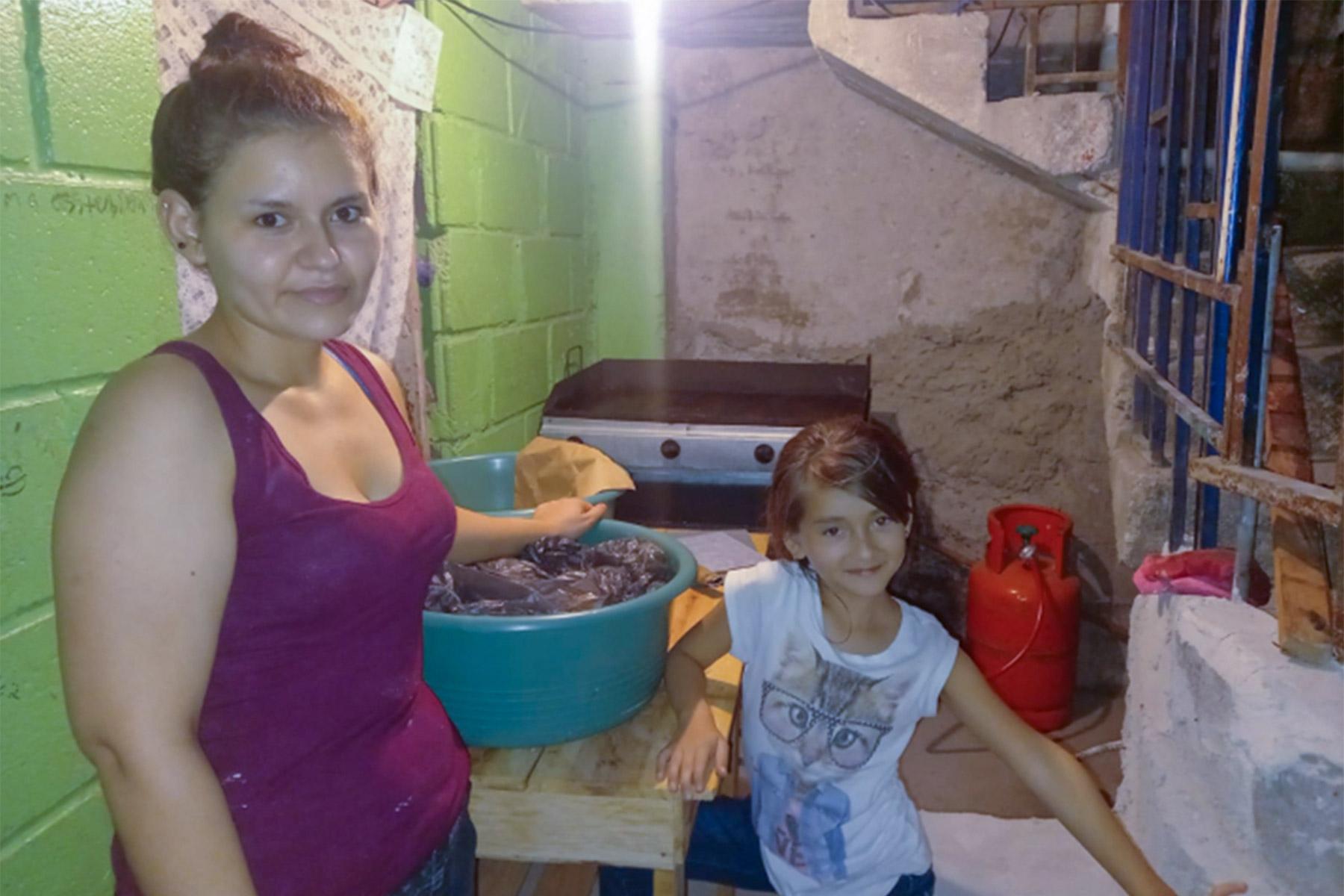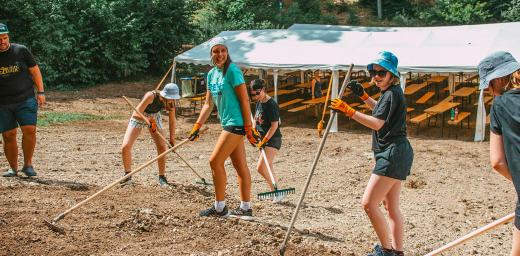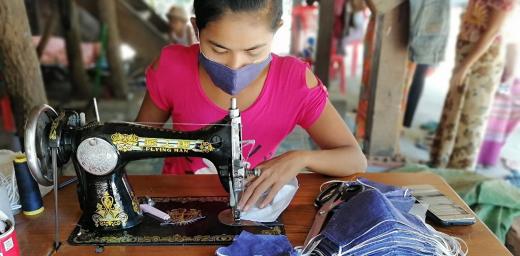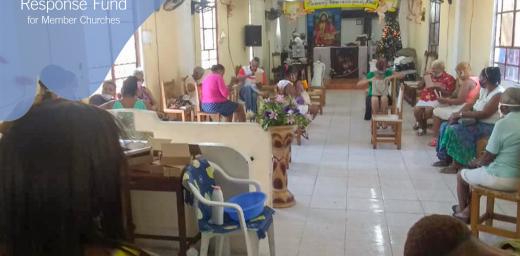LWF’s Rapid Response Fund continues to bring food relief and new income sources
(LWI) – On her feet for 11 hours, from 4.00 a.m. to 3.00 p.m., six days a week, Monday to Saturday, for a weekly wage of 500 Honduran Lempira (EUR 20) in a small tortilla factory in Comayagüela town, near the Honduran capital Tegucigalpa. This job brought María de los Ángeles Zavala barely enough income for her family’s basic needs and left her little time for her two daughters, eight and 12 years old. Even with her partner’s contribution from occasional work as a car painter, “It was difficult, and I was always very tired from work,” she recalls.
Today, María de los Ángeles owns a small business selling tortillas (cornmeal bread), and she has time for her daughters’ homework, with additional support from the Sunday school teacher at the local congregation of the Christian Lutheran Church of Honduras (ICLH). “I am a young woman who could not complete my studies, I only got to second grade,” says the 24-year-old. “With this business that is my own, I have more time to spend with my daughters, help them a little with their studies, and participate more in the church,” she adds.
With this business that is my own, I have more time to spend with my daughters, help them a little with their studies, and participate more in the church
María de los Ángeles Zavala, Honduras
She is among 17 women entrepreneurs who each received a non-refundable capital of around EUR 200 EUR from an ICLH solidarity fund. The assistance goes to low-income families in the Sula Valley region, who lost livelihoods due to the COVID-19 pandemic and two successive hurricanes Eta and Iota. More than 100 families also received parcels of non-perishable food items. The Lutheran World Federation (LWF) funded the ICLH project through its COVID-19 Rapid Response Fund (RRF).
“Some households had no other source of income,” noted Gloria Isabel Rodriguez Garcia, ICLH project coordinator. For the new entrepreneurs, mostly women and single mothers, they can now sustain their families. “In addition, it is a job that they own, without being exploited as low-wage laborers,” she said of the 17 different small-scale businesses that ICLH has helped to set up this year. The income-generating activities directly benefit nearly 90 people.


